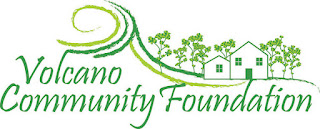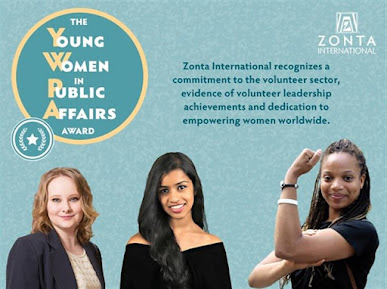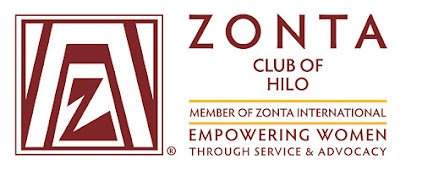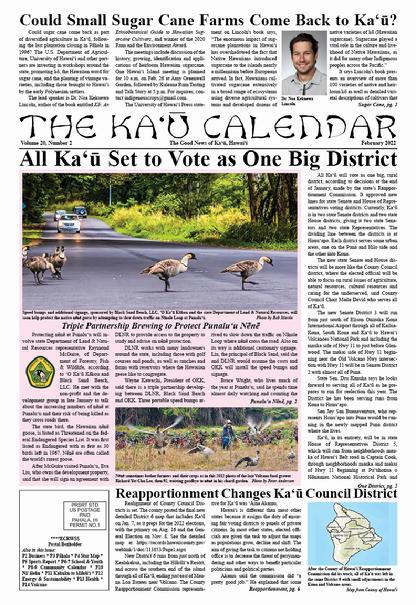 |
| MāmakiTea at Wood Valley Māmaki Farm, which sells most of its harvest to Shaka Tea. Photo by Julia Neal |
at https://www.civilbeat.org/2022/02/this-ancient-hawaiian-plants-popularity-has-soared-not-everyone-is-
pleased/
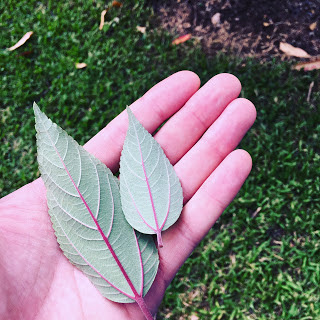 |
| Shaka tea got its start with māmaki from Wood Valley, its biggest supplier of the native leaf. Photo from Shaka Tea |
Heaton writes about the farm in Wood Valley, saying, "māmaki is naturally a companion plant, so grows well with others. Drayer’s māmaki is interspersed with nitrogen-fixing plants such as perennial peanut, nasturtium, marigold and teosante, the forbearer of corn. More nitrogen collected from the atmosphere means healthier soil."
Heaton writes, "Drayer, who hails from California and is also president of the Hawai'i Farmers Union United’s Kaʻū chapter, values the land and its integrity and wants his future children to have security and healthy food at their fingertips.
"Over the course of his time working closely with māmaki, Drayer has also found other potential uses for the plant, including a sap-like residue that he thinks could be used like pectin or a thickening agent." Drayer is quoted as saying, "The fact that māmaki is getting popular is great. But for someone like me, it’s important to keep it from going extinct.”
The story also points to māmaki being a favorite food of the state insect, the increasingly rare Kamehameha butterfly. Heaton also writes about māmaki's role in Hawaiian culture.
See the Civil Beat story at https://www.civilbeat.org/2022/02/this-ancient-hawaiian-plants-popularity-has-soared-not-everyone-is-pleased/
See The Ka'u Calendar stories on Shaka Tea, with its start in Wood Valley at http://kaunewsbriefs.blogspot.com/search?q=Shaka+Tea and its mention in a Hawai'i governor's State of the State address at http://kaunewsbriefs.blogspot.com/2017_01_23_archive.html.
To read comments, add your own, and like this story, see www.facebook.com/kaucalendar/. See latest print edition at www.kaucalendar.com. See February events and Kaʻū Calendar newspaper sponsors at http://kaunewsbriefs.blogspot.com/2022/02/events-of-february-2022.html.
A TRUTH-IN-LABELING BILL FOR KA'U AND OTHER HAWAIIAN COFFEES is before the Hawai'i Legislature and Hawai'i Farmers Union United urges support.HB1517 would require coffee blend labels to disclose geographic and regional origins and percent by weight of the blended coffees. The measure would prohibit using geographic origins of coffee in labeling or advertising for roasted or instant coffee that contains less than a certain percentage of coffee by weight from that geographic origin. The regulation would be phased in to requires a minimum of 51 percent after July 1, 2024.
 |
| A bill in the Hawai'i Legislature would prevent blends of less than 51 percent local coffee from using the regional name. |
A statement from Hawai'i Farmers Union says that "the way in which Hawai'i's current law allows a 10% coffee blend to be labeled "Kona," (or "Kaʻū," "Hamakua," "Maui," or "Kauai") is 'misleading.' The Legislature's 2007 Concurrent Resolution called it 'consumer fraud.' Hawai'i County's 2014 Resolution called it 'inherently deceptive and misleading.'"
Farmers Union states "It is also economically harmful to Origin coffee farmers." It points to a 2018 United Nations Food and Agriculture Organization conclusion that Hawai'i Origin brands do "not enjoy any strong protection" of their names, and that "downstream stakeholders, rather than farmers, reap the economic benefits of the fame" of the coffee using the origin in its branding of blends of 10 percent Hawai'i Origin coffees.
Hawai'i Farmers Union United requests testimony to be submitted at HB1517 before 2 p.m. Thursday Feb, 10. A public hearing will take place on Friday, Feb. 11.
To read comments, add your own, and like this story, see www.facebook.com/kaucalendar/. See latest print edition at www.kaucalendar.com. See February events and Kaʻū Calendar newspaper sponsors at http://kaunewsbriefs.blogspot.com/2022/02/events-of-february-2022.html.
VOLCANO VILLAGE IS MORE THAN 100 YEARS OLD, but "no one has ever told its whole story - until now," says a statement from The Volcano Community Foundation. The non-profit organization has launched a history project to document the people, places and events that have made the village a special place to live and work. "We're looking for photos, memorabilia and stories from people who are interested in contributing to the project."
Volcano Community Foundation says its members are especially interested in hearing from long-time residents who have seen changes over the years, but we also want to hear from current and former business owners, entrepreneurs, artists, folks involved in agriculture, ranching, eduction and more.
"Ultimately, we plan to share some of these stories on our website that is under construction and social media and, eventually, publish them in book form. If you have old photos, family stories or even just an opinion about the village that you want to share, please contact us by email or phone."
Volcano Community Foundation says its members are especially interested in hearing from long-time residents who have seen changes over the years, but we also want to hear from current and former business owners, entrepreneurs, artists, folks involved in agriculture, ranching, eduction and more.
"Ultimately, we plan to share some of these stories on our website that is under construction and social media and, eventually, publish them in book form. If you have old photos, family stories or even just an opinion about the village that you want to share, please contact us by email or phone."
Email volcanocommunity@gmail.com, or call Lorna Larsen-Jeyte at 808-937-2079 or Kathy English at 808-895-1011. "We will make arrangements to receive your input."
To read comments, add your own, and like this story, see www.facebook.com/kaucalendar/. See latest print edition at www.kaucalendar.com. See February events and Kaʻū Calendar newspaper sponsors at http://kaunewsbriefs.blogspot.com/2022/02/events-of-february-2022.html.
ZONTA IS OFFERING SCHOLARSHIPS AND AWARDS FOR WOMEN ISLANDWIDE. Called Hilo Zonta Club, the organization serves all of Hawai'i Island and reaches out to women to provide support for education.
"Zonta is pleased to offer a total of $15,000 in cash assistance on Hawai'i Island in 2022," said Nina Buchanan, Scholarship Chair. "We encourage women to apply for financial support for brighter futures in their chosen fields, and look forward to reading applications from a diverse pool of applicants."
The Young Women in Public Affairs Awards encourage more young women to participate in public affairs by recognizing a commitment to the volunteer sector, evidence of volunteer leadership achievements, and a dedication to empowering women worldwide through service and advocacy.
The Young Women in Public Affairs Awards encourage more young women to participate in public affairs by recognizing a commitment to the volunteer sector, evidence of volunteer leadership achievements, and a dedication to empowering women worldwide through service and advocacy.
It is open to to women who will be between the ages of 16 and 19 on April 1. Deadline to apply is March 1.
Women's Nursing Degree Scholarships are for women who demonstrate interest in continuing their nursing studies toward an advanced degree or leadership track. Open to women of any age, students must be currently enrolled full-time in the first year of a nursing degree program at University of Hawai'i - Hilo or Hawai'i Community College HH with an above-average record in scholastic standing (3.0 or better GPA) and who show a financial need. Deadline is April 15.
The Barbra Ann Pleadwell Scholarships are for female Hawai'i Island or O'ahu residents who are currently enrolled as full-time students in college/university or high school seniors. Preference is given to Women's Studies and/or Communications majors who demonstrate financial need. This is the first year this scholarship is offered, thanks to donations made in memory of Pleadwell. Deadline is May 1.
The Jane M. Klausman Women in Business Scholarships are awarded to women undertaking business studies who demonstrate outstanding potential in the field. Open to women of any age, students must be enrolled in at least the second year of an undergraduate program through the final year of a master's program at the time the application is submitted. Deadline is May 1.
Top winners of the YWPA Award and JMK Scholarship will be advanced from the club level to compete for additional awards and scholarships at the district and international levels of Zonta. To apply, see www.zontahilo.org/scholarships-grants/.
Zonta Club of Hilo is member of Zonta International, whose mission is to empower women through service and advocacy. Applications are available at www.zontahilo.org/scholarships-grants/.
Women's Nursing Degree Scholarships are for women who demonstrate interest in continuing their nursing studies toward an advanced degree or leadership track. Open to women of any age, students must be currently enrolled full-time in the first year of a nursing degree program at University of Hawai'i - Hilo or Hawai'i Community College HH with an above-average record in scholastic standing (3.0 or better GPA) and who show a financial need. Deadline is April 15.
The Barbra Ann Pleadwell Scholarships are for female Hawai'i Island or O'ahu residents who are currently enrolled as full-time students in college/university or high school seniors. Preference is given to Women's Studies and/or Communications majors who demonstrate financial need. This is the first year this scholarship is offered, thanks to donations made in memory of Pleadwell. Deadline is May 1.
The Jane M. Klausman Women in Business Scholarships are awarded to women undertaking business studies who demonstrate outstanding potential in the field. Open to women of any age, students must be enrolled in at least the second year of an undergraduate program through the final year of a master's program at the time the application is submitted. Deadline is May 1.
Top winners of the YWPA Award and JMK Scholarship will be advanced from the club level to compete for additional awards and scholarships at the district and international levels of Zonta. To apply, see www.zontahilo.org/scholarships-grants/.
Zonta Club of Hilo is member of Zonta International, whose mission is to empower women through service and advocacy. Applications are available at www.zontahilo.org/scholarships-grants/.
To read comments, add your own, and like this story, see www.facebook.com/kaucalendar/. See latest print edition at www.kaucalendar.com. See February events and Kaʻū Calendar newspaper sponsors at http://kaunewsbriefs.blogspot.com/2022/02/events-of-february-2022.html.
SEE FEBRUARY CALENDAR OF EVENTS & SPONSORS
See the February Print Edition of The Kaʻū Calendar at
